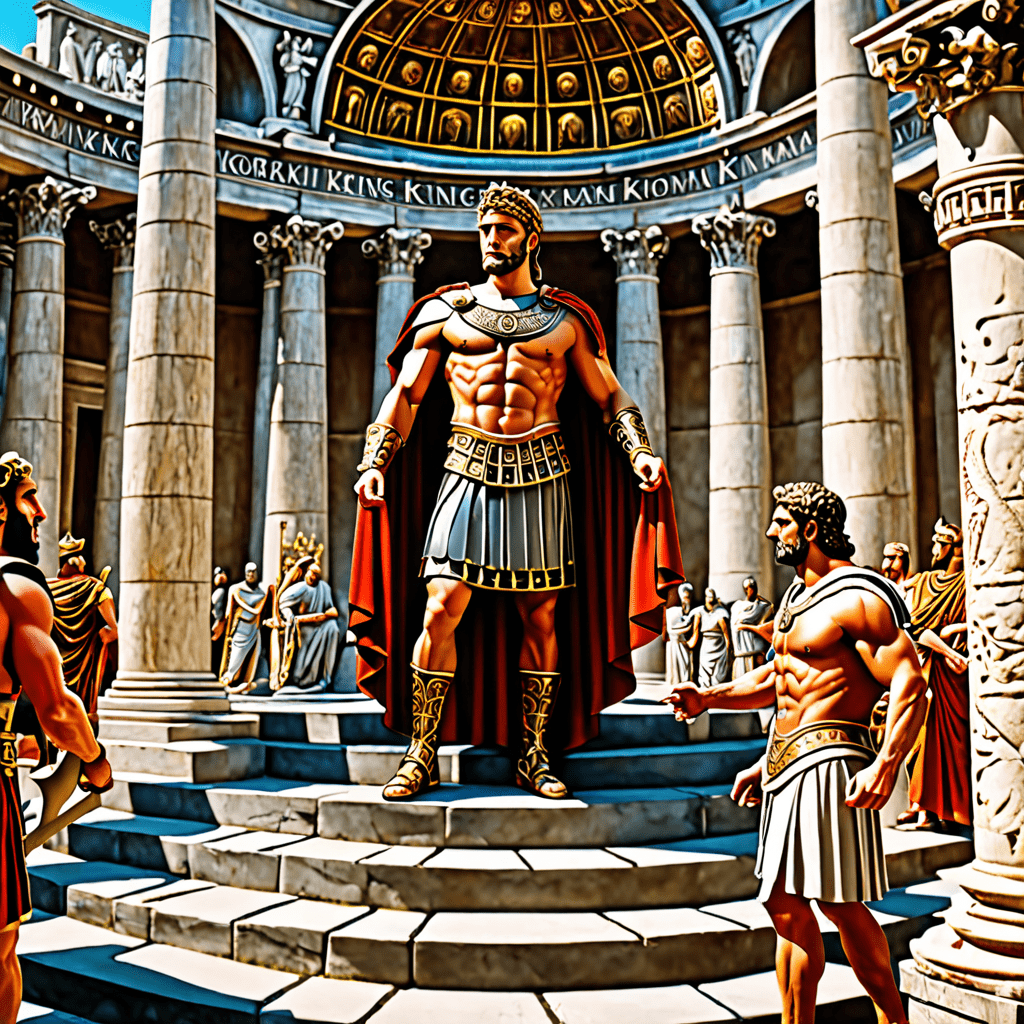The Mythological Origins of Roman Kingship
The ancient Roman kingdom holds a fascinating history rooted in mythology and legends. Let’s delve into the intriguing origins of Roman kingship that were steeped in divine narratives and traditional belief systems.
1. The Legend of Romulus and Remus
One of the most famous myths associated with the founding of Rome is the story of Romulus and Remus. According to legend, these twin brothers were abandoned as infants and raised by a she-wolf. As adults, they decided to establish a city but disagreed on its location. This led to a conflict where Romulus killed Remus and went on to found Rome in 753 BC. Romulus became the first King of Rome, marking the inception of Roman monarchy.
2. The Divine Right of Kings
In ancient Rome, kingship was often justified through the concept of the divine right of kings. Belief in the mythological ancestry of Roman kings was integral to their legitimacy and authority. The Roman Kingdom was believed to have been established by the gods, with the first kings being descended from divine beings. This divine lineage bestowed upon the kings a special connection to the gods and emphasized their role as the rulers ordained by higher powers.
3. The Reign of the Seven Kings
The Roman Kingdom was said to have been ruled by a series of seven legendary kings, starting with Romulus. Each of these monarchs played a significant role in shaping early Roman society and institutions. From Romulus, the founder, to the wise Numa Pompilius and the tyrannical Tarquin the Proud, these kings left an indelible mark on Roman mythology and history. The narratives surrounding their reigns provided essential moral and political lessons to the Roman populace.
4. Transition to a Republic
The Roman Kingdom eventually gave way to the Roman Republic, marking the end of monarchical rule in Rome. The overthrow of the last king, Tarquin the Proud, and the establishment of a republic reflected the evolving political consciousness of the Roman people. While the Roman Republic introduced a new era of governance based on shared power and public representation, the mythological origins of Roman kingship continued to influence Roman political thought and imagery for centuries to come.
FAQ: The Mythological Origins of Roman Kingship
What is the significance of the mythological origins of Roman kingship?
The mythological origins of Roman kingship lay the foundation for understanding the divine connections and legitimacy associated with early Roman rulers. Myths such as that of Romulus and Remus being raised by a she-wolf and Romulus founding Rome have been intertwined with the historical narrative of Roman kingship.
Who were Romulus and Remus in relation to Roman kingship?
Romulus and Remus were twin brothers in Roman mythology. They were believed to be the founders of Rome, with Romulus becoming its first king. The legend of Romulus killing Remus in a dispute over the founding of the city symbolizes the struggle for power and authority in early Roman history.
How did the myth of Romulus and Remus influence the concept of kingship in Rome?
The myth of Romulus and Remus provided divine validation and significance to the institution of kingship in Rome. The idea of being descended from gods or having divine approval was crucial to the authority of Roman kings. This mythological connection helped reinforce the ruler’s legitimacy and authority in the eyes of the Roman people.



